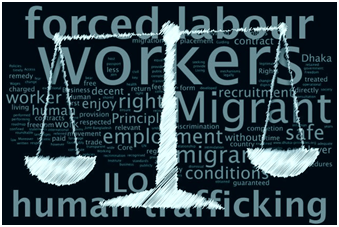
EU urges Member States to implement the new ILO Protocol on Forced Labour
Employment and Social Affairs 23 November 2015The International Labour Organization (ILO) estimates that 21 million people around the world are victims of forced or compulsory labour. This social plague generates 140 billion euro in illegal profits per year. The EU is committed to tackle this problem affecting most vulnerable people worldwide. In the past few days, the EU Council has given its backing to authorise Member States to ratify the ILO new Protocol – aimed at modernizing the 1930 Forced Labour Convention – by the end of 2016.
We can say that the EU plays a leadership role in setting up mechanisms to protect human rights and every Member State should vote for a legally binding protocol to modernize the ILO Forced Labour Convention. Countries ratifying the ILO Protocol agree to prevent the use of forced labour, in particular in the context of trafficking in human beings, to improve the protection of victims and to provide access to compensation. Furthermore, the Protocol also enhances wider international cooperation in the fight against this phenomenon.
Forced labour, human trafficking, and other modern forms of exploitation may be considered distant from the lives of ordinary Europeans. But according to an International Labour Organization (ILO) survey 880.000 people are victims of forced labour even in the European Union: many of them are migrants, while others are EU citizens who migrated between Member States.
A specific type of forced labour which is prevalent in EU Member States is forced begging. ILO research into the region has found that it largely involves children from Romania, Albania and Kosovo, who are forced to beg in EU countries. Another relevant field of exploitation and racket is forced prostitution throughout Europe. Furthermore, agriculture is another sector with a high level of forced labour: farmers in the EU frequently recruit workers in neighbouring countries at much lower cost.
Thus, ILO is committed in seeking to address trafficking for forced labour. At the supply side International Labour Organization works with workers and employers’ organizations and business to promote ethical recruitment standards. Another key aspect of ILO’s work is to support the organization and empowerment of workers, including migrant workers to ensure that their voice is being heard and that they have access to remedies.


